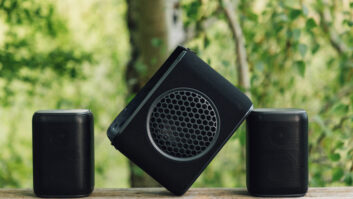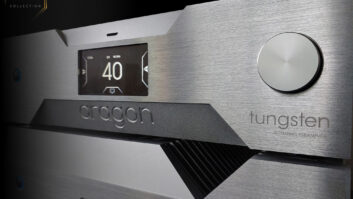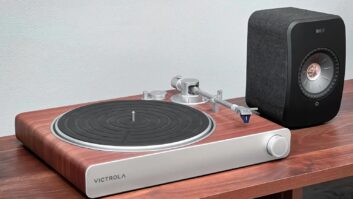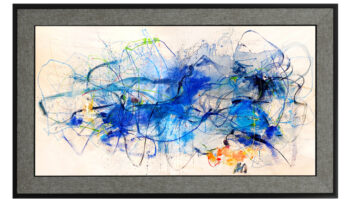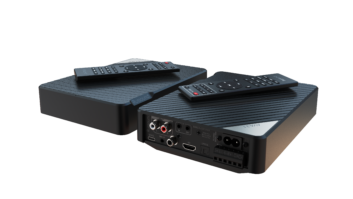Can you squeeze the quality of a master recording into a digital music file that’s smaller than a losslessly compressed 192kHz/24-bit FLAC file? Will the file outperform its 192/24 FLAC counterpart? Can you stream it over a broadband network to the home?
Bob Stuart, chairman of Meridian Audio, believes you can if studios use Meridian’s MQA (Master Quality Authenticated) technology to create the file. He expects MQA-encoded music files to be available to consumers in early 2015 along with more CE products with which to enjoy them. Meridian already offers a portable USB DAC that supports MQA technology.
Stuart believes a wide swath of the music industry agrees with him, having worked with the music industry for three years to bring the technology to market. One of the first music companies to launch MQA music could be Atlantic Records. Atlantic’s chairman/CEO Craig Kallman told me his company definitely plans to offer MQA files.
MQA’s performance is startling. During a presentation Monday at the company’s U.S. headquarters in New York City, Stuart played back 0.9Mbps MQA-encoded files made from recordings originally made at 17Mbps 384kHz/24-bits. He pulled the lever on the time machine to bring us back to 1963 to the studio where Dylan recorded a mono analog master. Ray Charles came back to life through a 1955 master tape. Despite the tape hiss, voices and instruments sounded startlingly clear, delivering surprising depth and texture.
Analog, PCM and DSD masters can be turned into MQA-encoded digital music, which can be placed inside any lossless-audio “container” such as FLAC, ALAC or WAV. A three-minute MQA download would consume 30MB of storage space on a hard drive or portable device compared to 150MB for a three-minute 192/24 FLAC file, Stuart told TWICE. The ratio is different at other sample rates.
Because MQA streams at 1Mbps on average, it’s suitable for streaming services. CD-quality streaming runs at 0.8Mbps on average.
An MQA decoder can take the form of an app, a software player, or hardware, Stuart said. A software decoder in a smartphone, tablet, or iPod Touch app would be “capable of decoding all sources and matching it to the DAC on board,” he noted. Select smartphones already feature 192/24 DACs.
For backward compatibility with existing high-resolution decoders, an MQA-encoded file played back on a device lacking MQA decoder will deliver better-than-CD quality, Stuart pointed out.
How MQA does it is also a fascinating tale. For more details on that and related topics, see the Dec. 15 issue of TWICE.







